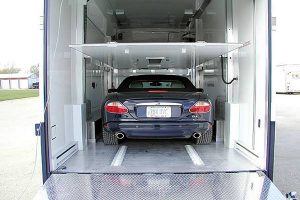If the government provides and pays any of your moving or storage expenses, you do not have to claim those expenses as deductions against your taxes. Within certain limits, you may claim deductions for moving, storage, insurance, and transportation expenses.
State tax laws change frequently, so you should check with your tax adviser to see if you are eligible to claim this deduction against state income taxes. Whether or not your state allows moving expenses to be deducted depends on whether your states tax laws automatically update as federal tax laws change, or if legislation needs to be passed to update them.
If your income tax return is due before you meet that requirement, you may still be able to deduct the moving expenses that are allowed, as long as you anticipate meeting the timing test. The one exception for having to meet the time test is if you start your new job several months before the rest of your family moves to your new neighborhood due to a special circumstance, such as if your spouse is currently receiving health care services, or if your children are finishing their school year close to your old home. If you have a special circumstance, you may deduct your moving expenses even though your move happens some time after you start work.
The timing of your move has to closely follow the beginning of your new employment for it to be eligible to receive a deduction. If you are getting ready to move, you can take advantage of a moving tax deduction as long as you are employed at the time or are self-employed at your new place. You cannot deduct your personal moving expenses unless you are moving within a year of starting employment at your new location, unless you can show you were prevented from moving during this period. If You Moved Before 2018 If you moved before recent tax changes took effect in 2018, your moving expenses can still be tax-deductible as long as you meet distance and timing requirements.
If you meet the requirements in the Tax Code to deduct moving expenses, you can deduct the eligible expenses of moving into a location that is a primary place of employment in the U.S. or U.S. territories. As a result, you may itemize deductions for income tax purposes in New York, even if not listed on your Federal return, including moving expenses. New York passed legislation following the tax reforms stating that some provisions of the Tax Cuts and Jobs Act will not be included in the states laws–including the provision that suspended the moving expenses deduction.
Before the Tax Cuts and Jobs Act (TCJA), qualified moving expenses were treated as above-the-line deductions that reduced an individuals taxable income, meaning you did not need to itemize your deductions on a federal tax return; you could deduct the cost of moving to find a job or find a new job, and still get a standard deduction. The TCJA suspended the moving expense tax deduction for unreimbursed employee expenses, including moving costs that cannot be recouped by an employer or third party, such as a government entity. If your employer reimburses you for moving costs that you took the deduction for, you might need to count that reimbursed money as income on your tax return.
You still might be able to take a deduction for moving expenses from the state taxes, however, so check the rules for the place where you live to see if the state gives you a deduction on taxes incurred for moving expenses. Time & Distance If you moved for a new job at a new place, there are three rules about time and distance that must be met when qualifying for moving expenses to be deducted from your state tax return. State by state Check the tax code of your state to see if moving expenses are still deductible where you live, since some states need a separate piece of legislation to include any new federal rules, and they did not change with the most recent tax changes. If you moved in 2018 or after, the IRS has a short online tool that can help you determine whether or not your expenses are deductible.
For active-duty service members moving to a permanent post outside of the United States, all the above expenses are deductible, as well as storage costs of household goods and personal items during any period that you are at the new post. Qualified members of the armed forces may deduct their expenses to move household goods, as well as travel expenses for members of their family.
Active members of the U.S. Armed Forces who incur expenses related to an ongoing station change may deduct them. If you are an active-duty member of the military, you may deduct moving expenses from your federal return as long as the move is a result of military orders or is a-permanent change of station–no matter what time period or distance rules apply. Unreimbursed expenses you incur for a spouse or dependent may also be deductible. For tax years 2018 to 2025, only active-duty members of the U.S. Armed Forces of the U.S. Armed Forces may deduct moving expenses, and only if the move was because of a military order. Note For active-duty members of the Armed Forces, they may exclude qualified moving expenses that are reimbursed only from their income when there is a permanent change in station, and if the moving expenses were not reimbursed, the moving expenses would have been eligible for the deduction.
Military members still may deduct the cost of moving without reimbursement — or most of it, anyway — from taxable income, provided that the moving is due to military orders. Other ductable expenses worth noting are the cost of breaking a lease to relocate, or costs associated with buying or selling a house, like mortgage penalties, losses from selling the property, and property taxes. Some indirect costs of moving–including meals, trips for home hunting, temporary housing expenses, and attorneys fees and real estate commissions–are also nondeductible. Moving-related expenses must take place during any 30-day period following the moving of items out of the old house and prior to their delivery to the new home.








